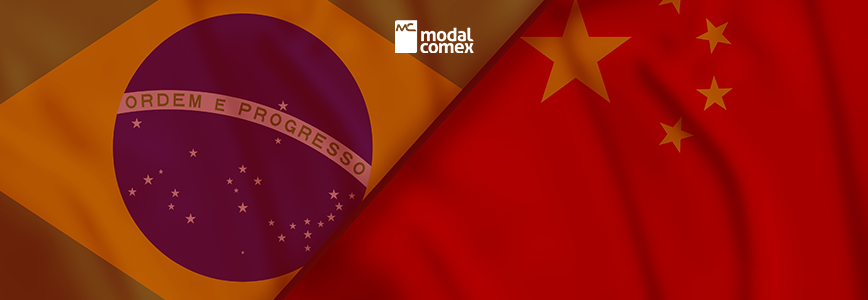Integration between Brazil and China: Advancements in Foreign Trade

On Wednesday, September 25, an important step will be taken in the commercial relationship between Brazil and China with the signing of a memorandum of understanding in Brasília. The document, which aims to integrate Brazil’s Single Foreign Trade Portal with its Chinese counterpart, promises to bring more agility, cost-effectiveness, and security to mutual foreign trade operations.
The memorandum, titled “Cooperation in Single Windows for Foreign Trade,” primarily aims to establish interoperability between the two systems. This means that the platforms will be able to “communicate” with each other, recognizing tools and protocols used in both countries. This integration could facilitate the recognition of Authorized Economic Operators, as well as enable the exchange of logistical information, customs declarations, and certificates, such as those of origin and ePhyto—a phytosanitary electronic document designed to reduce costs, timelines, and bureaucracy for exporters.
Representing Brazil at the signing of the memorandum will be Tatiana Prazeres, the Secretary of Foreign Trade at the Ministry of Development, Industry, Commerce, and Services (Secex-MDIC), and Robinson Barreirinhas, the Special Secretary of the Federal Revenue of Brazil. On the Chinese side, Zhao Zenglian, the Vice Minister of the General Administration of Customs, will be present.
It is worth noting that China is Brazil’s main trading partner, with trade volume reaching an impressive $160 billion in 2023. Strengthening relationships and expanding trade exchanges are priorities for the Brazilian government, which has already conducted two high-level official missions to China in the past two years. The first was led by President Luiz Inácio Lula da Silva, and the second by Vice President and Minister Geraldo Alckmin.
The Single Foreign Trade Portal
The Single Foreign Trade Portal Program is a Brazilian government initiative aimed at reducing bureaucracy, time, and costs associated with exports and imports. The project seeks to more efficiently meet the demands of foreign trade by reformulating processes and creating a centralized platform for interaction between the government and private operators. This modernization of the system, which is an evolution of Siscomex, active since 1993, represents a significant advancement for Brazil in the international arena.
The expectation is that this new partnership will not only simplify processes but also strengthen Brazil’s presence in global trade, creating a more dynamic and competitive environment for Brazilian companies.


